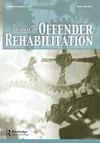监禁后的生活:加纳阿克拉释放的少年犯所面临的挑战
IF 1.1
Q3 SOCIAL WORK
引用次数: 0
摘要
摘要本文采用定性研究方法,运用现象学方法,探讨了阿克拉刑满释放未成年人所面临的挑战。从阿克拉高级惩教中心获释的12名年轻男性参加了分析解释现象学方法的采访。研究结果表明,参与者在教育和就业方面遇到了挑战。助长这些挑战的因素包括缺乏财政资源和耻辱感。研究发现,国家对释放的少年犯重返社会缺乏支持也是另一个主要因素。这项研究的结果揭示了在加纳实施儿童正义政策的必要性。必须将针对违反适合非洲和加纳地形的法律的儿童的与环境有关的重返社会程序纳入少年司法行政部门。此举是为了确保被释放的未成年罪犯得到照顾。研究结果进一步呼吁对适合非洲背景的重返社会计划进行更多研究,并为满足这些获释少年罪犯的需求而策划。本文章由计算机程序翻译,如有差异,请以英文原文为准。
Life after detention: challenges encountered by released juvenile offenders in Accra, Ghana
Abstract This article explores the challenges encountered by released juvenile offenders in Accra, employing the qualitative research method, using the phenomenological approach. Twelve young male adults released from the senior correctional center in Accra took part in interviews which analyzed the Interpretative Phenomenological Approach. The findings of the study reveal that the participants encountered educational and employment challenges. Factors that fueled these challenges include the lack of financial resources and stigma. The lack of state support for the reintegration of released juvenile offenders was also another major contributing factor, the study identified. The findings of this study reveal the need for implementing the Justice for Children policy in Ghana. Context-related reintegration processes for children in conflict with the law suitable for the African and the Ghanaian terrain must be incorporated into the juvenile justice administration. This move is to ensure that released juvenile offenders are cared for. The findings further call for more research into reintegration programs fit for the African context and curated to meet the needs of these released juvenile offenders.
求助全文
通过发布文献求助,成功后即可免费获取论文全文。
去求助
来源期刊

Journal of Offender Rehabilitation
SOCIAL WORK-
CiteScore
1.60
自引率
0.00%
发文量
24
期刊介绍:
The Journal of Offender Rehabilitation is a multidisciplinary journal of innovation in research, services and programs in criminal justice and corrections. The journal is an essential professional resource for practitioners, educators and researchers who work with individuals involved in the criminal justice system and study the dynamics of rehabilitation and individual and system change. Original research using qualitative or quantitative methodology, theoretical discussions, evaluations of program outcomes, and state of the science reviews will be considered.
 求助内容:
求助内容: 应助结果提醒方式:
应助结果提醒方式:


